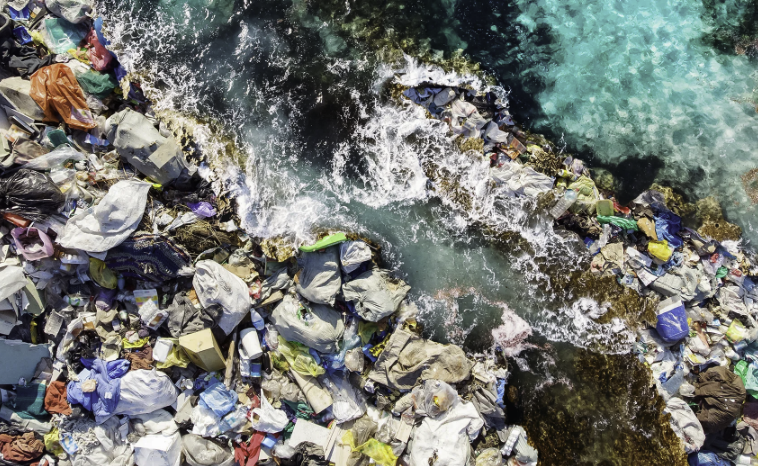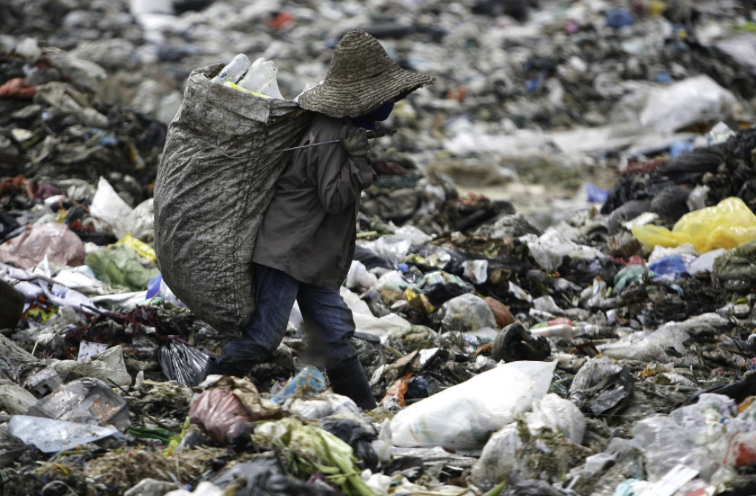Plastic Pollution: The Disparities in Plastic’s Consequences for First World Nations
From Britannica
Trash dumping in the ocean is illegal but it's still done. Even the simple action of leaving a plastic bottle on the beach can impact numerous amounts of marine life. Think about it, the wind can pick up trash and deposit it in the oceans adding to the trillions of waste already pre-existing. Scientists estimate that about 350 trillion pounds of plastic waste are present in our oceans. There isn't a square mile in all the oceans that is free of plastic pollutants. This issue of plastic dumping in oceans has become so terrible that the Great Pacific Garbage Patch exists. This is a 1.6 million square kilometer mound of trash, which is three times the size of France. The underlying problem pertains to the material which the polymers are created from, they don’t decompose. In simpler terms, plastic doesn't disappear but merely breaks into smaller microplastics which are easily mistaken for food by marine animals. Fish ingest 12-14 thousand tons of plastics a year and studies have shown that plastic can affect reproduction- which hinders ecosystem population growth. Recyclable and compostable plastics need to be made, in 2017 35.4 million tons of plastic were recycled but only 8.4% were processed as only they contained usable materials. With no use for the remaining materials, countries ship mountains of waste to developing countries disrupting advancement and creating a deluge of health concerns.
From National Geographic
The developing world is a fast-paced, ever-changing network of cities across the globe. These places pride themselves on expeditiousness though in actuality this “efficiency” comes from offloading menial issues onto underserved nations. Plastic and waste is one of those cases. In addition, the reason why plastic pollution is high in second to third-world countries also relates to the influence of Western consumer expenditure. First-world nations ship trash to low-income countries as the regulations are generally more flippant allowing for trash to be imported. Trash dumping disproportionately affects developing nations as many of these countries are situated along coastlines that have become encapsulated in waste, the waste in low-income countries is expected to triple by 2050.
It is this inequitable and indolent mindset that perpetuates climate change as well as hierarchical systems. Our lack of persistence and habitual inertia are the reasons to blame for the climate crisis, child labor, and capitalist monopolies. We think of wealth, when plastic was first created the discardable world we live in was far from a concern. It is not for lack of trying, but rather for the greater force of resistance which is met.

